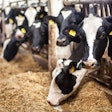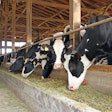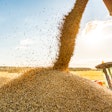
The Food and Agriculture Climate Alliance (FACA) announces it's expanding membership and new policy working groups focused on developing a set of more specific policy proposals that drill down on the 40+ recommendations released by FACA in November 2020.
FACA's eight founding members — American Farm Bureau Federation (co-chair), Environmental Defense Fund (co-chair), FMI – The Food Industry Association, National Alliance of Forest Owners, National Association of State Departments of Agriculture, National Council of Farmer Cooperatives (co-chair), National Farmers Union (co-chair) and The Nature Conservancy — welcomed 14 new groups to the Steering Committee.
New steering committee members are: the American Seed Trade Association, American Sugar Alliance, Association of Equipment Manufacturers, Association of Public and Land-grant Universities, Biotechnology Innovation Organization, Crop Insurance and Reinsurance Bureau, Ducks Unlimited, Farm Credit Council, National Cattlemen’s Beef Association, National Corn Growers Association, National Cotton Council, National Milk Producers Federation, Produce Marketing Association, and USA Rice Federation. The general membership is also growing. A full list of FACA’s 42 members can be found atAgClimateAlliance.com.
Congress and the Biden administration have expressed high levels of interest in the previously released FACA recommendations and requested additional guidance on how to achieve the goals laid out in the November report. In response, the alliance’s policy working groups are producing more detailed and specific proposals focusing on the carbon bank concept, tax credits and other incentives, as well as climate research. The policy working groups continue to uphold FACA’s three principles:
- Agricultural and forestry climate policies must be built upon voluntary, incentive-based programs and market-driven opportunities
- They must promote resilience and adaptation in rural communities
- They must be science-based
FACA’s original 40+ recommendations cover six areas of focus: soil health, livestock and dairy, forests and wood products, energy, research, and food loss and waste. They are outlined in a50-page report [PDF]and summarized in aone-page hand-out [PDF].
“We are encouraged that leaders in both the House and Senate are requesting more detailed guidance to achieve FACA’s climate goals and recommendations," says American Farm Bureau Federation President Zippy Duval. "It’s important that any new climate policies respect the people who will be impacted the most – farmers and ranchers. FACA’s 40-plus proposals demonstrate farmers and ranchers must be treated as partners as we work together to build on the impressive advances already achieved toward climate-smart farming.”
Duvall also welcomed the 34 new members of FACA who represent farmers, agribusinesses, state governments and environmental advocates.
"The growth of alliance members from a wide range of industries shows we are on the right path toward protecting the environment while ensuring farmers and ranchers can continue growing healthy, affordable food for America’s families," he says.
The alliance welcomes additional members. Questions about membership or the recommendations can be sent to[email protected].
TheFood and Agriculture Climate Alliance由组织代表农民,ranchers, forest owners, agribusinesses, manufacturers, the food and innovation sector, state governments, sportsmen and environmental advocates. These groups have broken through historical barriers to develop and promote shared climate policy priorities across the entire agriculture, food and forestry value chains.





















